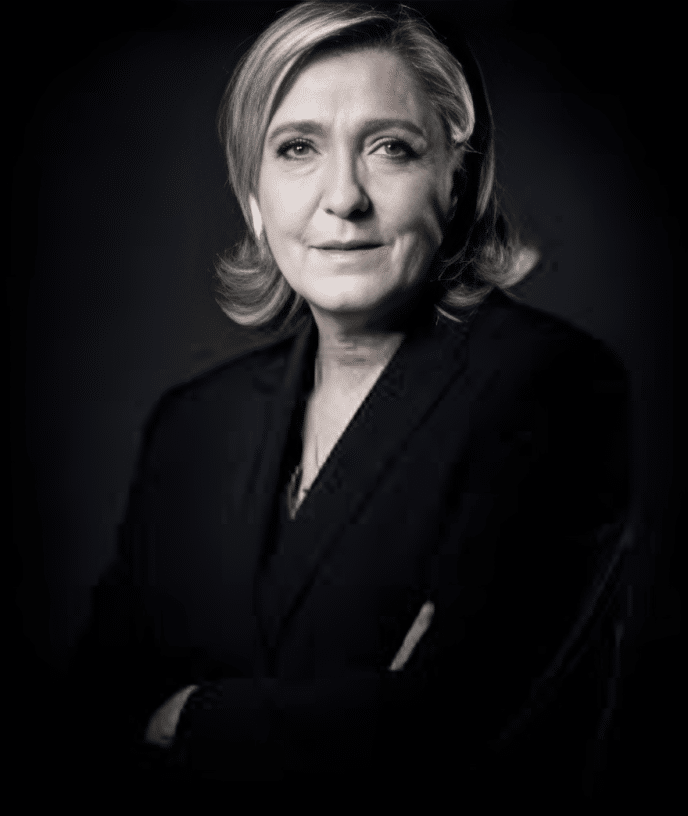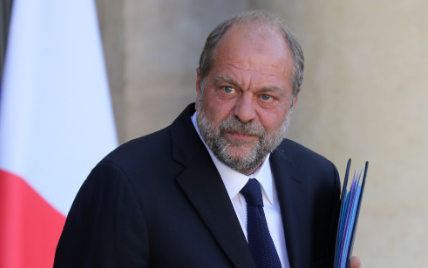Early Life and Education
Marine Le Pen was born on August 5, 1968, in Neuilly-sur-Seine, France. She is the youngest daughter of Jean-Marie Le Pen, the controversial founder of the National Front. Her childhood was marked by political turmoil, including a 1976 bombing targeting her family’s home.
She studied law at the University of Panthéon-Assas (Paris II), graduating in 1991, and completed an advanced degree in criminal law in 1992. She worked as a lawyer in Paris until 1998 before fully entering politics.

Entry into Politics
In 1998, Le Pen joined the National Front’s legal department, later becoming its vice president in 2003. She won a seat in the European Parliament in 2004 and played a major role in her father’s 2007 presidential campaign.
By the late 2000s, she gained visibility through regional posts in Nord-Pas-de-Calais, where she strengthened her political base.
Leadership of the National Front/National Rally
In 2011, Marine Le Pen succeeded her father as leader of the National Front. She sought to modernize the party’s image, rebranding its hardline stance into a broader French nationalist platform.
She emphasized anti-immigration policies, criticism of the European Union, and rejected her father’s history of antisemitic rhetoric. In 2018, she rebranded the party as the National Rally (Rassemblement National).
Presidential Campaigns
- 2012: Ran for president, finishing third with over 18% of the vote – the party’s best result at the time.
- 2017: Advanced to the second round but lost to Emmanuel Macron with 34% of the vote.
- 2022: Faced Macron again, achieving her strongest showing with 41.5%, but ultimately lost.
- Despite electoral defeats, she positioned the National Rally as a major force in French politics.
Euroskepticism and International Influence
Le Pen became one of the most prominent voices of Euroskepticism in Europe. She aligned with leaders like Geert Wilders and Matteo Salvini, supporting Brexit and celebrating Donald Trump’s 2016 U.S. election victory as signs of a global nationalist movement.
Legal Troubles and Conviction (2025)
In 2024, Marine Le Pen faced trial for embezzling EU parliamentary funds. In 2025, she was convicted and received:
- Five-year ban from running for office (excluding her from the 2027 French presidential election).
- Four-year prison sentence, with two years under house arrest and two years suspended.
- She vowed to appeal the ruling, but the conviction marked a dramatic fall in her political career.
Legacy
Marine Le Pen remains one of the most influential figures in modern French politics. Her leadership reshaped the far-right, bringing it into the mainstream, but her legal downfall in 2025 severely impacted her chances of returning to power.





